The Irish Division Focused Meeting 'Host–Pathogen Interactions' will take place between 30 June–1 July 2016 and will take place at Trinity College in Dublin, Ireland.
The theme of this event is One Health – human and animal interaction with pathogens. The meeting will strike a balance between how bacterial or viral pathogens can have an impact on a host and it will also highlight cutting edge research into potential therapies that are being developed.
Organising committee: Kim Roberts (Trinity College Dublin, Ireland), Gerald Barry (University College Dublin, Ireland), Ultan Power (Queen's University Belfast, UK)
Key topics:
Follow us on Twitter @MicrobioSoc
Updates on Host–Pathogen Interactions can be found using the hashtag: #HPinteractions
Abstract submission is now closed.
The final decision is at the reviewers' discretion.
Poster abstracts for this meeting can be downloaded below. However, a printed poster abstract book will also be available to collect from the registration desk onsite. At the meeting, posters will be presented in the breakout area.
For tips on how to best prepare a poster or oral presentation please click on the following links.
Registration is now closed. You will be able to register and pay onsite if you have missed this deadline.
You can extend your networking opportunities at this meeting by attending the conference dinner, which is taking place on Thursday 30 June. If you book for supper, you will enjoy a meal at the Farm Dawson Street with other delegates. Please secure your place when registering for the meeting as places are limited. You can view a sample menu (subject to change) below:
The Society offers funds via the Conference Grant schemes to support the attendance of members at all stages of their careers:
The closing date for applications is Monday 6 June 2016. See the relevant pages for further details including application forms and full terms and conditions.
Book before Monday 13 June to take advantage of the early bird rate.
| Type | Early bird rate | Rate after 13 June 2016 |
| Full Member | £40 | £50 |
| Full Member with supper | £80 | £90 |
| Non-member, Affiliate Member, International Associate Member (not UK and Ireland) | £60 | £70 |
| Non-member, Affiliate Member, International Associate Member (not UK and Ireland) with supper | £100 | £110 |
| Full Concessionary Member, Student Member | £25 | £35 |
| Full Concessionary Member, Student Member with supper | £65 | £75 |
Upon registration you should receive an automated confirmation email. Please contact [email protected] if after 24 hours this has not been received.
If you need a letter of invitation for a visa application, we will be happy to supply this after we have received full payment.
To find out if you need a visa to visit the UK, please visit the UK visa and immigration website.
To find out if you need a visa to visit Ireland, please visit the Irish Naturalisation and Immigration Services website.
Please note that all conference delegates are responsible for their own travel and visa arrangements; the Microbiology Society will not take any responsibility for travel or visa problems.
All registration fees must be paid in full BEFORE arrival at the conference. Any outstanding registration fees must be paid before admittance will be granted to the conference.
Refunds will not be provided.
Substitutions of attendees can be made at any time by contacting [email protected].
International speakers are invited to present their work in this field of microbiology. Each person below is highly recognised.
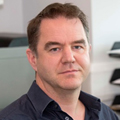
Andrew obtained his PhD in Biochemistry from Trinity College Dublin (TCD) in 1997. He was elected a Fellow of TCD in 2008, and a member of the Royal Irish Academy in 2014. He is currently Head of Immunology in the School of Biochemistry and Immunology, TCD. His main research interests are pathogen detection and innate immune signalling, and how such detection processes are subverted by viruses.
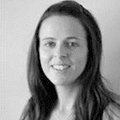
After completing a BSc in Microbiology at University College Cork, Sinéad undertook a PhD in Molecular Microbiology with Professor Colin Hill at the Alimentary Pharmabiotic Centre, University College Cork, investigating the interaction of Listeria monocytogenes and the intestinal mucosa, determining factors required for microbial pathogenesis. Following this, she undertook a postdoc with Professor Fergus Shanahan in the APC Microbiome Institute, in collaboration with GlaxoSmithKline, and with Professor Luke O'Neill in the School of Biochemistry and Immunology, Trinity College Dublin. In 2015, Sinéad joined the academic staff of the Department of Microbiology, where her research group centres on understanding both microbiological and immunological processes in intestinal infectious and inflammatory disease, specifically the impact of the gut microbiota.
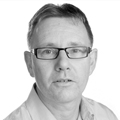
Liam is Director of the Molecular Virology Diagnostic and Research Laboratory (MVDRL) and Senior Lecturer in the Department of Medicine, University College Cork (UCC). He was awarded his PhD in Immunogenetics in 1992 from the National University of Ireland. After this, he did a postdoctoral fellowship, with BioResearch Ireland, in human genetics at UCC, followed by a postdoctoral fellowship in Immunology at the University of Toronto, Canada, before returning to Ireland in late 1995. Together with colleagues, Liam set up the MVDRL at UCC. His research portfolio includes over 60 publications, primarily relating to his hepatitis C research, but also on hepatitis B, HIV and human papillomavirus. His research interests include virus–host interactions in hepatitis C infection, temporal mapping of viral diversity in the context of natural history and treatment environments and gut viromics in the context of humoral immune activity.

Julian is Chair in Infection and Global Health at the University of Liverpool, and visiting Professor of Virology at Northwest A&F University in China. He obtained a BSc in Genetics from University College London and a PhD in Virology from The Pirbright Institute/University of Reading. He conducted postdoctoral research at the University of Alabama at Birmingham, and started a lectureship in Virology at the University of Reading in 1999. From there, he moved to the University of Leeds and then, in 2012, to the University of Liverpool.

Ulla obtained a PhD in Pharmaceutical Biology from the University of Munich and joined the faculty of The Scripps Research Institute (TSRI) in La Jolla, California, after completing postdoctoral research at TSRI. She remained in the Department of Immunology and Microbial Science at TSRI for many years as Assistant and Associate Professor before she joined University College Dublin. The focus of Ulla's research is the regulation of innate/mucosal immunity and host–pathogen itneractions by reactive oxygen species and signalling networks.
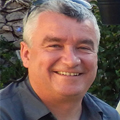
David obtained a BA (Mod) degree in Genetics from Trinity College Dublin (TCD) in 1988 and undertook PhD rsearch in animal genomics at TCD. His postdoctoral work on livestock paleogenomics was funded by a Wellcome Trust Research Fellowship in Bioarchaeology. In 1999, he took up a lectureship in University College Dublin (UCD) and was appointed Associate Professor in 2009. David is currently the Associate Dean for Research, Innovation and Impact at the UCD School of Agriculture and Food Science. He is also a co-founder and Scientific Advisor to Equinome Ltd and a co-founder and member of the Scientific Advisory Board of IdentiGEN Ltd. David's research programme is focused on host–pathogen interactions of Mycobacterium bovis infection and development of novel disease biomarkers for bovine tuberculosis. Other research activities include livestock production genomics; population genomics of extinct and modern livestock populations; and with Dr Emmeline Hill, identification of genomic variants, genes and cellular pathways for health and athletic performance traits in Thoroughbred horses.
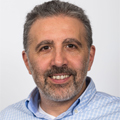
Massimo is the Director of the MRC-University of Glasgow Centre for Virus Research and Chair of Virology at the University of Glasgow. A veterinarian by training, his research programmes focus on the biology, evolution and pathogenesis of animal arboviruses and on the mechanisms of virus cross-species transmission. Massimo's laboratory is funded by the Wellcome Trust and MRC, and his studies have been published in major scientific journals including Science, PNAS, and PLOS Pathogens. He has been elected Fellow of the Academy of Medical Sciences, of the Royal Society of Edinburgh, and of the Royal Society of Biology. Massimo was a Wolfson-Royal Society Research Merit Awardee, and is currently a member of the Infection and Immunity Board of the Medical Research Council.

Following a postdoctoral position in St Jude Children's Research Hospital in Memphis, USA, Ultan was appointed Head of Virology/Senior Scientist at the Center of Immunology Pierre Fabre (CIPF) in France. He was closely associated, from concept to clinical trials, with the first Respiratory Syncytial Virus (RSV) vaccine ever to reach a phase III clinical trial. This project was awarded the Prix Galien in 1998 and a FF15.5 million subvention from the French Government to facilitate development. Following 11 years at the company, Ultan moved to Queen's University Belfast in 2004. The principle research focus of his laboratory is to try and help resolve one of the major bottlenecks in RSV biology, i.e. how does RSV interact with human hosts to cause disease? In this regard, his group established and now exploits novel models of RSV infection-based well differentiated primary paediatric bronchial and nasal epithelial cells – the primary targets of RSV infection in vivo.
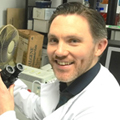
Fred completed his BSc in Genetics at University College Cork (UCC) in 2004. He worked as a Research Assistant on microbial genetics with Professor John Atkins at UCC and University of Utah, USA, between 2004 and 2005. Fred pursued a PhD at Trinity College Dublin (TCD) with Professor Luke O'Neill at the School of Biochemistry and Immunology from 2005–2009, studying the role of microRNAs in TLR signalling. He undertook postdoctoral research at NYU School of Medicine, USA, from 2010–2013, studying innate immunity in atherosclerosis and lipid metabolism with Kathryn Moore. He then returned to TCD in 2013 as Senior Research Fellow in the School of Medicine at Professor Joe Keane's lab, studying macrophage responses to Mtb. Fred obtained the SFI Starting Investigator Award in 2014 and will be joining School of Biochemistry and Immunology in TCD as the new Ussher Assistant Professor in Immunometabolism.

Ben completed his postdoctoral formation in Molecular Biology from Harvard University, USA, in 2007, after receiving his PhD in Medicine from McGill University. He is presently a Professor of Microbiology at the Icahn School of Medicine at Mount Sinai, USA. Research in the tenOever lab focuses on the mammalian antiviral defences of the cell, the corresponding viral countermeasures employed during infection, and use of this information in the development of new technologies.
Accommodation is not included in the registration rate for this meeting. Please see below for some local options.
The conference will be held in the Moyne Lecture Theatre at Trinity College Dublin:
Moyne Lecture Theatre
Trinity College Dublin, University of Dublin
College Green
Dublin 2
Ireland
General enquiries: +353 1 896 1000
The closest airport is Dublin Airport, which is 12 kilometres (8 miles) away from Dublin city centre. Both Dublin Bus and Aircoach have services that leave from directly outside the airport and can bring you into the city centre. Tickets can be purchased upon arrival in Dublin Airport. See the Dublin Bus website and Aircoach website for further information. There also is a taxi rank directly outside the Arrivals hall in Dublin Airport.
Regular scheduled ferry services operate between Ireland, the UK and mainland Europe, for both foot passengers and vehicles. The two ferry ports are Dublin Port and Dun Laoghaire. For further information, please see the Dublin Port website and the Dun Laoghaire website.
Trains run regularly from throughout Ireland. Please see the Irish Rail website for more information.
Bus Eireann and Citylink are two major providers of buses to Dublin, but others also exist. Visit Bus Eireann and Citylink for further information.
Any enquiries relating to exhibiting or sponsorship at this event, please contact [email protected]
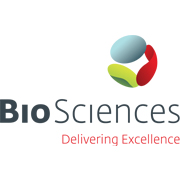
|
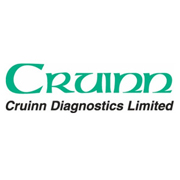
|